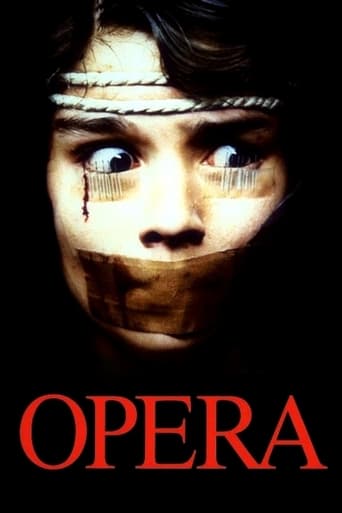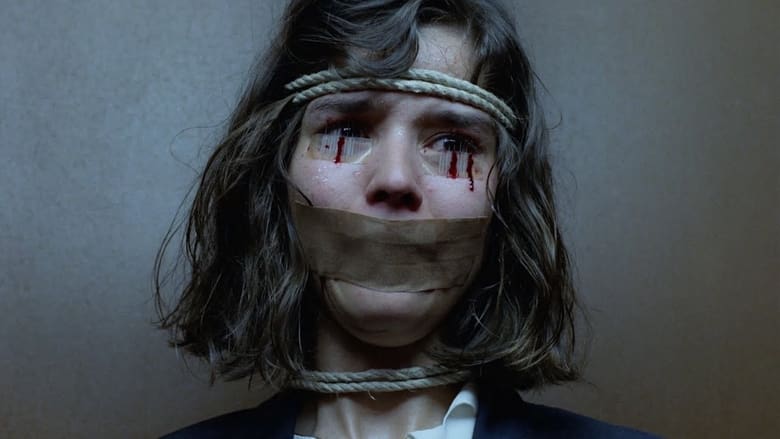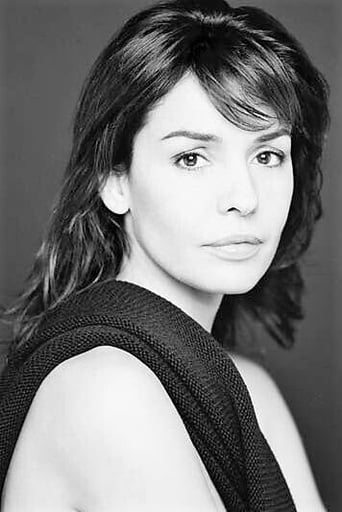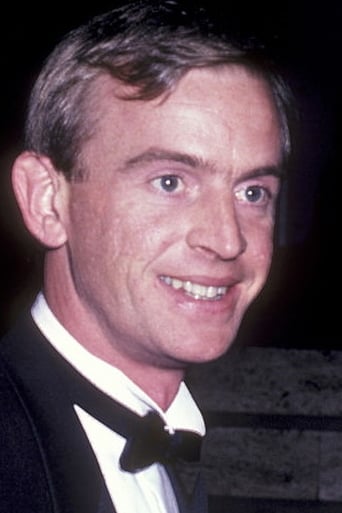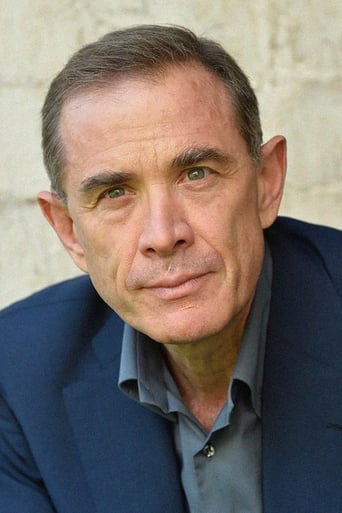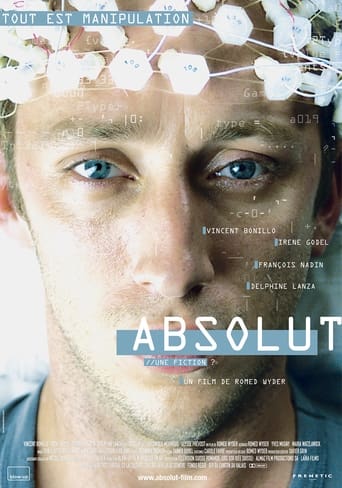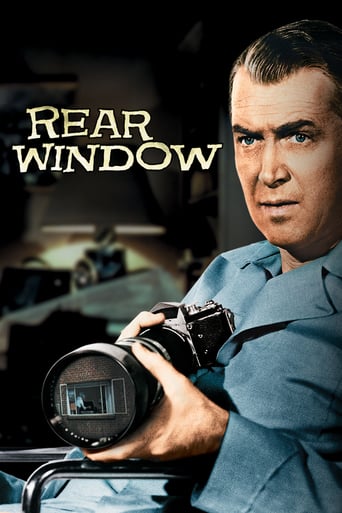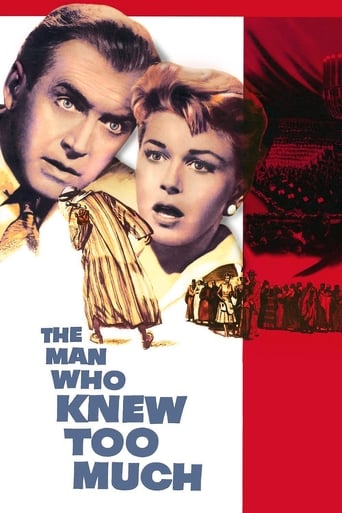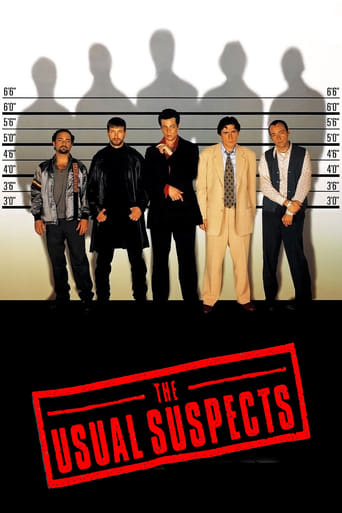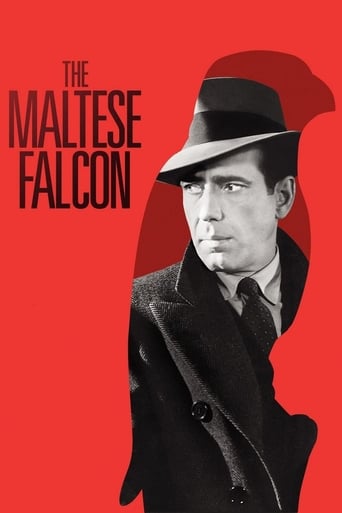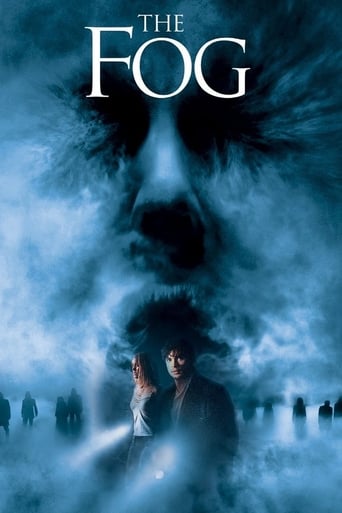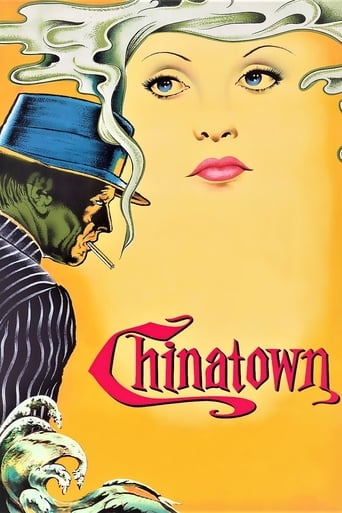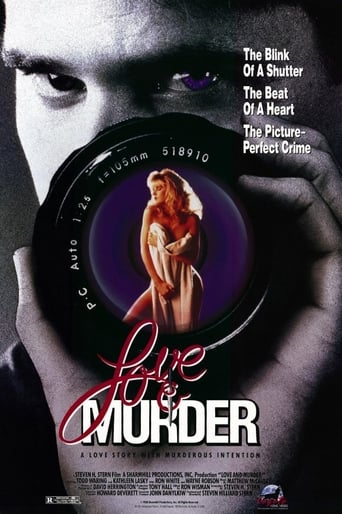Opera (1990)
A young opera singer is stalked by a deranged fan bent on killing the people associated with her to claim her for himself.
Watch Trailer
Cast


Similar titles
Reviews
Stylish but barely mediocre overall
Yo, there's no way for me to review this film without saying, take your *insert ethnicity + "ass" here* to see this film,like now. You have to see it in order to know what you're really messing with.
Good films always raise compelling questions, whether the format is fiction or documentary fact.
Very good movie overall, highly recommended. Most of the negative reviews don't have any merit and are all pollitically based. Give this movie a chance at least, and it might give you a different perspective.
"Opera" known as 'Terror at the Opera' in the United States, was amongst Argento's most commercially successful films in his homeland of Italy. Verdi's opera 'Macbeth' is historically known for bringing bad luck to its casts, a fact that is not lost on Argento. Betty takes the lead only after the great 'Mara Czekova' fights with the film's director and breaks her leg (Czekova, who remains unseen throughout the film, was originally to be played by Vanessa Redgrave, who had been in Antonioni's 'Blow-Up' an influence on Argento). Once Betty takes to the stage as Lady Macbeth, a monster from her mother's past is awakened and the killings begin. The crows in the film only screech in the presence of a familiar evil, however the identity of the film's killer is of little consequence; Argento's focus is on the way the Santini forces Betty's gaze. 'Opera's' memorable gimmick has Santini placing a row of needles below Betty's eyes, forcing her to watch the grueling deaths of her friends, the most absurdly over the top being when Giulia is killed and swallows a bracelet in the struggle, forcing Santini to perform an 'autopsy' on her with a pair of scissors. Reinforcing his obsession of sightlessness, Betty's vision is temporarily blurred after she applies some eye drops. Opera's infamous keyhole set piece reinforces Argento's fascination with seeing as a terror mechanism. The finale whilst becoming too silly by half, does link it to its predecessor, with Betty's adventures in the countryside and her encounter with a lizard recalling Jennifer's psychic relationship to insects in 'Phenomena'. Made in 1987, 'Opera' is the end of Argento's influential period. He has made 12 films since of which 'The Stendahl Syndrome' in 1996 is worth a look.
Usually I float over titles I see on this website and let it be as karma to the film, or whatever, but this one seems to have a bad rep that I intend on redeeming. This film is worth me putting my foot in the door and saying something, I can't physically change your mind, but I can try and push the bad reviewers out of sight (by finding out where they live, kidnapping them with 3 rolls of duct tape per body, some heavy duty garden rope, and dropping them off the shortest peak of Mt Everest.) Some reviews say it's just a film that panders to gore hounds, where others say the story makes not a blip of sense. I recently watched another Italian horror director's (Lucio Fulci)film "House By The Cemetery", and I realised something about the whole genre of Italian Horror, whether it be very grounded Giallo types, or the supernaturally dream like horrors that feel like a hallucination. They're films that go for a "definite feeling", how they get there at the end, however unorthodox or off the wall they are, they achieve dread through little quirks and symbols, artistic motifs, camera shots, music that is genuinely saddening and horrifying. But whatever criticisms you might have about the acting, the strange, unrealistic script, the gore... you get "there". It creeps up your skin. It goes for a densely packed experience, filled with all kinds of dreams, fashion, themes and nightmares. On a documentary about Italian Horror films, it said something very important about the cultural significance of them and it is something that Fulci said: "Violence is an Italian art". There's something about their overbearing, bloody, Roman past, and their highly emotional society, and how even today it is so constricted by religion and class orders, and how this is represented in their horror output as a kind of rebellion. Sure there is worthy Italian comedy, but it's the horror that is done artistically and poignantly, and always in anything gruesome, there is a sense of humour anyway. It seems what they want us to believe is that it comes naturally to them and we should understand that their understanding serves a purpose in the universe.With "Opera", the setting is that familiar scene of paparazzi, false love, real pain, celebrities, the fans, that cold world where talent, and love for what you do, takes you. Least of all, it's about Guiseppe Verdi's opera- "Macbeth". Actors at odds with their fans, A dark celebration of youth, life imitating art, it could be interpreted many ways, but ultimately I think what's clearest about it is its disdain for celebrity worshiping culture. It's fantastically cynical and has a seething hatred running through it. It's shot like a dream, which is not uncommon for Argento films, but a dream which turns sour for the unsuspecting protagonist who is unsure about the power of her singing talent, but coerced into taking the role of Lady Macbeth. The art direction in this is grey and futuristic looking, everything is the colour of granite, splashed with blue. Every element of the movie is densely layered, the cinematography, the music, the pacing is so tightly packed it's like watching someone get stuck in a black hole where no man has gone before. And that's my last point about this movie and why you should see it... it's a completely original film, an artistic accomplishment in its own right. It's a rebellious statement, it's brutal, it's seductive, it's confidently done, I just hope you read this review before the others and at least give it a chance. Saying it's rebellious has made me realise something: modern horror films are done for the enjoyment of watching them, it's like the makers enjoy it and that carries on, whereas the old films were made by men and women who were fighting in their own small ways, an oppressive society, who enjoyed fear above all else because the horror makes you think, they used their dream like horror as an intellectual and educational tool. This film is still a part of that "Old School". I don't know what to say, maybe my love for this movie is as irrational as the whole Italian horror canon, as the dream-like way in which they shot the films, but as far as going on pure feeling goes, my gut tells me to follow this one, and you should too. Get a creep under your skin, get a view of the world you've not seen, watch this!!
Dario Argento's "Terror at the Opera" stars Cristina Marsillach as Betty, a young opera singer who is menaced by a mysterious serial killer. The killer forces Betty to witness various murders – literally pinning her eyes open in some sequences – a routine which he enacts out of "love". We later learn that the killer once performed the same routines for Betty's mother, also an opera singer. The film ends with Betty and her director fleeing to the countryside, where she proposes marriage to the killer prior to slaying him before prying eyes. By the film's end, "Terror" has a become a giant metaphor for Argento's own filmography, the director spilling blood out of love for both audience and art.Unlike Argento's best films, which tend to be minimalistic and which tend to rely primarily on a fusion of images and music, "Terror" is cluttered. It's an overly busy, overly verbose film, and most of its sets are gaudy or ugly. Compare, for example, with the clean lines of Argento's "Deep Red", or the sleekness of Hitchcock and De Palma, Argento's chief influences.Like most of Argento's later works (in particular, "Tenebre"), "Terror" is heavily self-reflexive. Pinned eyes allude to an audience Argento himself holds captive, giant opera stages recall Argento's own blood operas, and the film is filled with loopy tunnels and corridors, which coil in the shadows like the brain stems of poor little Betty.Incidentally, the opera Betty performs is an avant-garde rendition of Giuseppe Verdi's Macbeth, historically renowned for bringing bad luck to its casts. The "bad luck" in "Terror" mostly consists of gory murder sequences, primarily designed for gore-hounds and fans of splatter horror.5/10 – See "Rear Window" and "Body Double", better films which implicate audiences and artisans. Worth one viewing.
Being both a Dario Argento fan and a Phantom of the Opera fan, I was dying to see his first take on the story, before the so-bad-it's-good "Dario Argento's Phantom of the Opera". The film is just terrific, even the plot, which here is one of Argento's best at a coherent story. The way he turns a classic romance story into a creepy slasher is just terrific. The film has a very nightmarish feel, which helps on keeping you on the edge of your seat. The colors have never been better in an Argento film since the jaw-dropping "Suspiria". The murders are clever and gory, all done in Argento's trademark style. The thing with the eyes in this film is just unsettling, and done some much better than in Fulci's splatter. The acting is so-so, but once you seen the movie more times you understand the characters' motivations better, and you get used to it. My two biggest complains about it is the use of rock music. I think it was a clever idea to mix beautiful opera fragments with heavy-metal, but it's not executed very well here. The ending is VERY disappointing, which is the worst thing about the movie, seeming to echo Argento's previous "Phenomena", but done terribly, it just didn't need to end that way. The same thing happened in the director's cut of "The Exorcist". I wished they kept the original ending. But still it's a fantastic motion picture and really a must-see, if only for Daria Nicolodi's memorable murder sequence.

